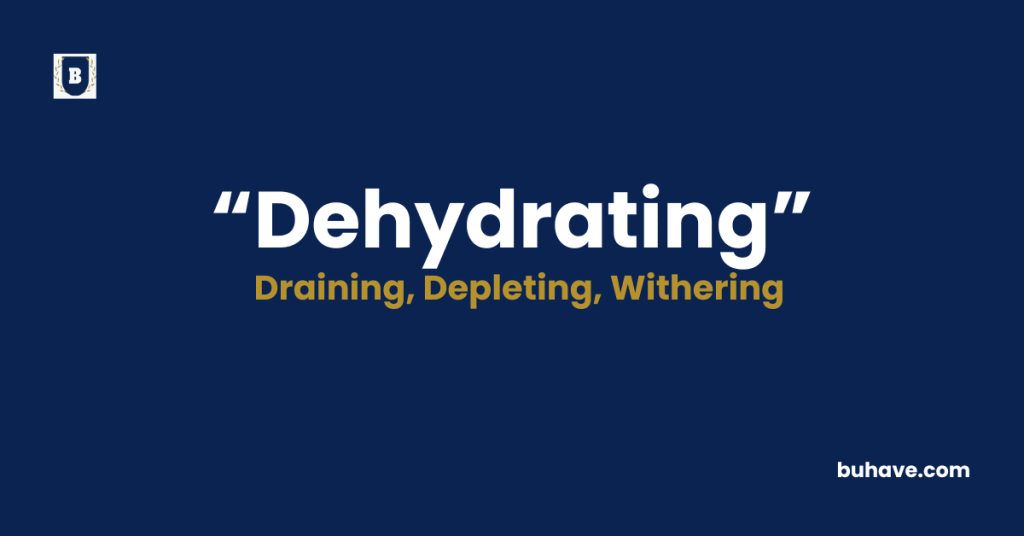The word Dehydrating (adjective) describes something that removes water or moisture from something, often causing dryness or thirst. In this guide, you’ll learn the full definition, synonyms, antonyms, etymology, and real-life examples of how to use Dehydrating correctly in sentences.
Dehydrating Explained in Depth
A complete and detailed guide to the word Dehydrating including meaning, definition, examples, etymology, synonyms, and antonyms.
Meanings of Dehydrating
Dehydrating means removing water or moisture from something, making it dry or less hydrated. It often refers to physical processes that lead to dryness, but it can also be used metaphorically to describe experiences that leave you feeling drained. For example, spending hours in the sun without drinking enough water can be dehydrating.
Definition
Dehydrating refers to the process of removing moisture or water from something, which can cause it to become dry or shriveled.
It highlights the loss of water that can lead to dryness and discomfort. For example, hiking in hot weather without enough water can be dehydrating.
Etymology
The word dehydrating comes from the verb “dehydrate,” which is formed from the prefix “de-” meaning “remove” and the root “hydrate,” from Greek “hydor,” meaning “water.”
Over time, it has come to describe any process or condition that removes moisture or causes dryness.
Example Sentences
- The hot weather is extremely dehydrating, so make sure you drink enough water.
- The air conditioning can be dehydrating, so use a humidifier at night.
- Running a marathon can be dehydrating if you don’t drink fluids regularly.
Dehydrating Synonyms
- Drying
- Desiccating
- Parching
- Draining
- Evaporating
- Withering
- Thirst-inducing
- Moisture-removing
- Drying-out
- Shriveling
Dehydrating Antonyms
- Hydrating
- Moisturizing
- Refreshing
- Rehydrating
- Dampening
- Quenching
- Soothing
- Nourishing
- Reviving
- Watering
FAQs about Dehydrating
Here are some frequently asked questions (FAQs) about the word “Dehydrating”
1. What does “dehydrating” actually mean?
“Dehydrating” means removing water or moisture from something, often leading to dryness or thirst.
2. Is “dehydrating” always bad?
Not necessarily. Sometimes dehydration is intentional, like drying fruits, but it can be negative when it affects your health.
3. Can “dehydrating” describe how people feel?
Yes, it can describe how someone feels after sweating a lot or being in the heat without enough water.
4. How is “dehydrating” different from “drying”?
“Drying” is a general term, while “dehydrating” specifically refers to removing water or moisture from something.
5. Is “dehydrating” commonly used in everyday conversation?
Yes, especially in contexts like health, fitness, and weather discussions.

















